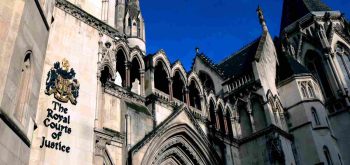Major newspapers and publishers have called on MPs to investigate ministers blocking freedom of information requests. Editors of the Daily Mirror, The Times, the Daily Telegraph, the Financial Times, and The Guardian have also signed up to a letter to the Conservative chairs of the Public Administration Committee and the Media Committee to urge MPs to investigate the government’s role in stifling Freedom of Information Act requests (FOI).
openDemocracy has accused the government of establishing an ‘Orwellian’ Cabinet Office ‘clearing house’ to deal with FOI requests and running a blacklist of journalists. ‘This secretive FOI unit gives advice to other departments “to protect sensitive information”, and collates lists of journalists with details about their work,’ openDemocracy claims. ‘These lists have included journalists from openDemocracy, The Guardian, The Times, the BBC, and many more, as well as researchers from Privacy International and Big Brother Watch and elsewhere.’
When an FOI request is made, the recipient is meant to be unaware as to who made the request. However, the investigation alleges that although the Government are not meant be aware, this is often not the case when it is sent to the unit in the Cabinet. A reporter from openDemocracy, Jenna Corederoy, sent an FOI to the Attorney General’s office. After sending her request, she discovered that the staff at the office had written in internal emails ‘just flagging that Jenna Corderoy is a journalist… once the response is confirmed, I’ll just need [redacted] to sign off on this before it goes out, since Jenna Corderoy is a reporter for openDemocracy.’
The Government have allegedly said to ‘blacklist’ journalists who send FOI requests, often obstructing or delaying their FOI requests for years. This ‘black list’ of journalists allegedly has names of reports from most of the newspaper, news website, radio and TV organisations. According to the Daily Mail, as well as journalists being blacklisted, there is a team to advise Government departments on how to circumvent releasing information.
The Cabinet office has acknowledged that ‘a Clearing House function’ has been in existence since 2004 but has said that it is ‘not in Michael Gove’s office’ (as alleged) and does not share personal information about journalists. It insists ‘no such blacklist exists’ and it is not making it more difficult to make FOI requests.
‘The consideration of FOI requests is, and remains, applicant-blind. All FOI requests are treated exactly the same, regardless of who the request is from and their occupation. It would be unlawful for the Cabinet Office, or other departments, to blacklist enquiries from journalists and their requests are not treated differently to anyone else who sends FOI requests. It is appropriate for departments to prepare for possible media interest in information released under FOI, but this is separate from a decision on whether or not to release information.’
openDemocracy are working together with the law firm Leigh Day to urge the Cabinet Office to reveal full details of how the Clearing House operates, together with almost 40,000 people signing a petition for Michael Gove calling for urgent action.






